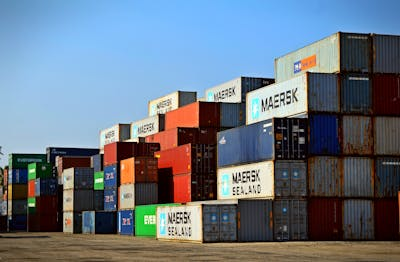Launching a supply chain business can be exhilarating; the prospects of growth, collaboration and creativity are just around the corner. However, before you begin onboarding clients and developing your network, you need to handle the paperwork.
That’s right; the least exciting part of launching your startup may end up being the most important. It comes in handy when securing funding, signing contracts or being compliant with the law. Here are eight important documents every supply chain startup should have in place from day one.
1. Certificate of Incorporation
This is the ‘birth certificate’ of your business. Your local government should issue the certificate of incorporation after officially starting your business. It is a requirement for opening business bank accounts, applying for loans, and entering contracts.
The certificate gives you legitimacy with vendors and clients. Whether you’re forming an LLC or a corporation, a certificate of incorporation represents your business’ legal existence.
2. Operating Agreement or Bylaws
When you have formally registered your incorporation, an internal governance document is still required. An Operating Agreement (for LLCs) or Corporate Bylaws (for corporations) will set the broad framework for your company. It includes the roles of each member, and the various decision-making processes.
Problems can arise if you lack a clear internal governance structure. An internal governance document is particularly critical for startups with multiple founders. It helps mitigate misunderstandings and set expectations.
3. Vendor and Supplier Agreements
In supply chain, you will rely heavily on vendor relationships so you need to build solid vendor agreements. As a baseline, these agreements should spell out terms such as prices, delivery timelines, late shipment penalties, and payment schedules.
Having a clear vendor or supplier agreement helps you build within a risk management framework, strengthen consistency in supply chain flowand eliminate the potential for legal grey areas. Since you will likely have multiple vendors, you need to customize agreements for each vendor or supplier relationship. Work with a contract lawyer to evaluate the various clauses related to liability, particularly in the context of late deliveries, damaged goods, etc.
4. Lease Agreements
If your startup has a physical presence, you’ll need a lease. It lays out your rights and obligations as the tenant, and the obligations of the property owner.
Startups should negotiate flexibility with their leases. Businesses grow rapidly and you may need extra space sooner than expected. If possible, always ask to include a clause about an early termination option or subleasing.
5. Employment Contracts and Payroll Documentation
As you add more members to your team, you’ll need to formalize the terms of employment. The offer letter, employment agreement, and position-specific agreements will allow you to get ahead of what you expect from employees and, in turn, limit future human resources issues.
These documents should outline compensation, job duties, confidentiality requirements, termination provisions, and non-compete clauses where applicable. Consider using an intuitive, easy-to-use platform like Will form to create and manage your legal forms and contracts.
In addition to having contracts, you have to formalize how payroll will be documented. A consistent payroll process will help you remain compliant and build credibility with your employees.
6. Non-Disclosure Agreements (NDAs)
In the early stages of a supply chain startup, you’ll probably share proprietary processes, product specifications, and business strategies with your partners, clients, and investors. NDAs are your first line of defense in preserving your intellectual property and confidential information.
Use them when you onboard vendors, hire key people, or speak with investors prior to pitching. The NDA should specify what information is confidential and the time period for which the NDA remains in force.
7. Insurance Policies
Proof of insurance is not technically ‘paperwork’ but it is a document that you’ll need to have in some shape at all times. At a minimum, you should have general liability insuranceworkers compensation , and property insurance for your warehouse/office space.
If you are handling high-value goods or third-party logistics, you may need additional insurance including cargo insurance, errors and omissions insurance, and business interruption insurance. Make sure you keep both electronic and hard copies of all policies and carefully review them annually.
8. Business Licenses and Permits
Depending on your location and the services you want to provide, you may need unique licenses. Common ones include: freight brokers’ license, import/export permits, and state-specific logistics operating licenses.
Failure to obtain the proper permits can attract fines or cause your business to be shut down. Research on the licenses and permits required in your area and hire a compliance consultant if necessary.
Endnote
The supply chain environment is dynamic and having the appropriate documentation can help you keep up. The right documents will help build trust, ease communication challenges when sharing workflows, and allow for compensation if something goes wrong. As you scale your business, invest in document management software or cloud-based storage. It will allow you to centralize everything for your convenience.

